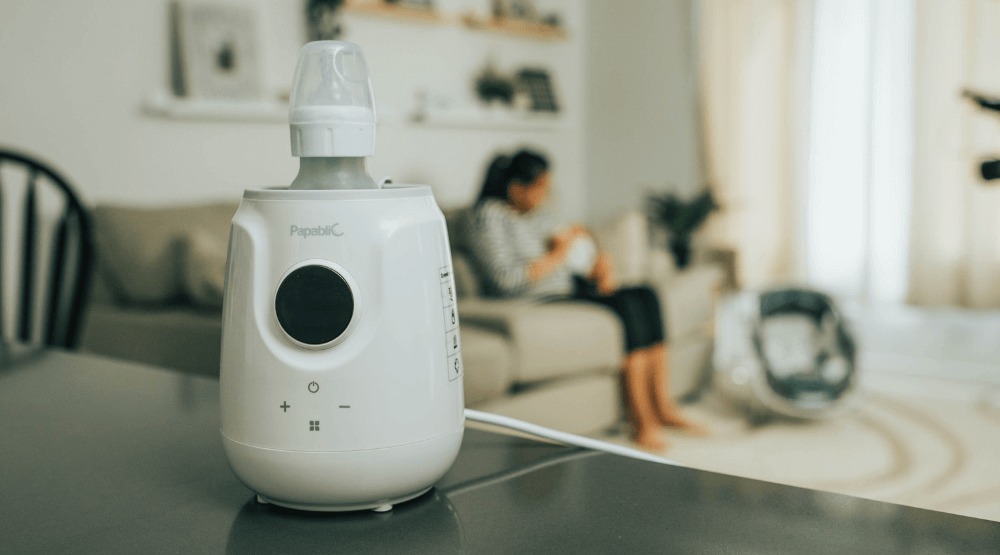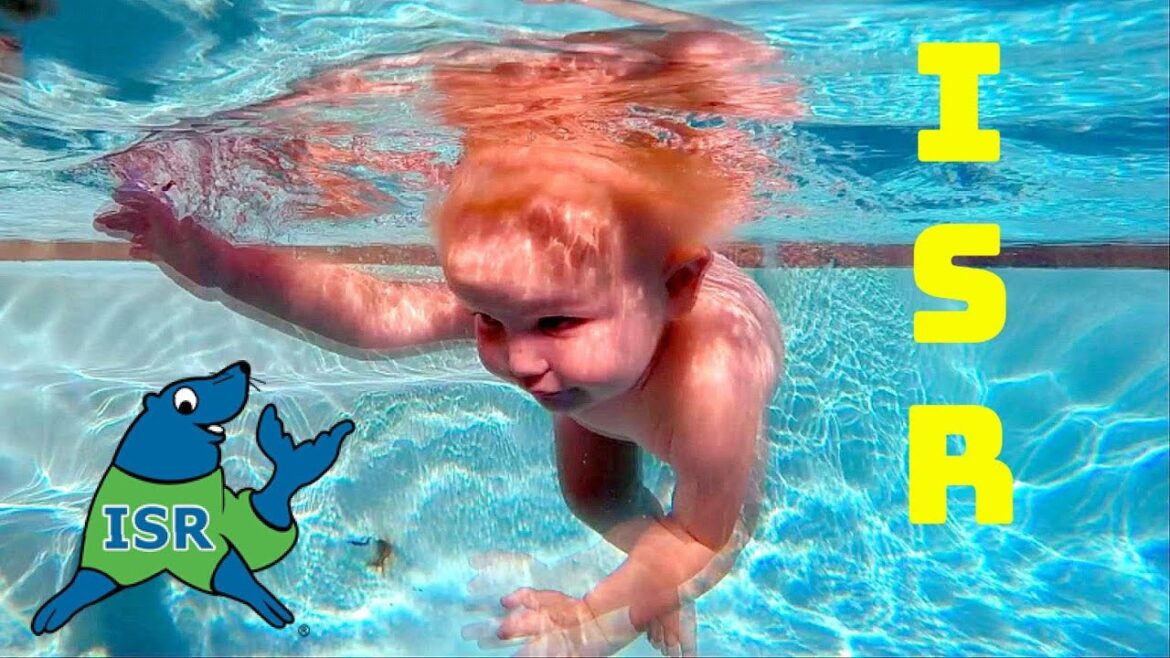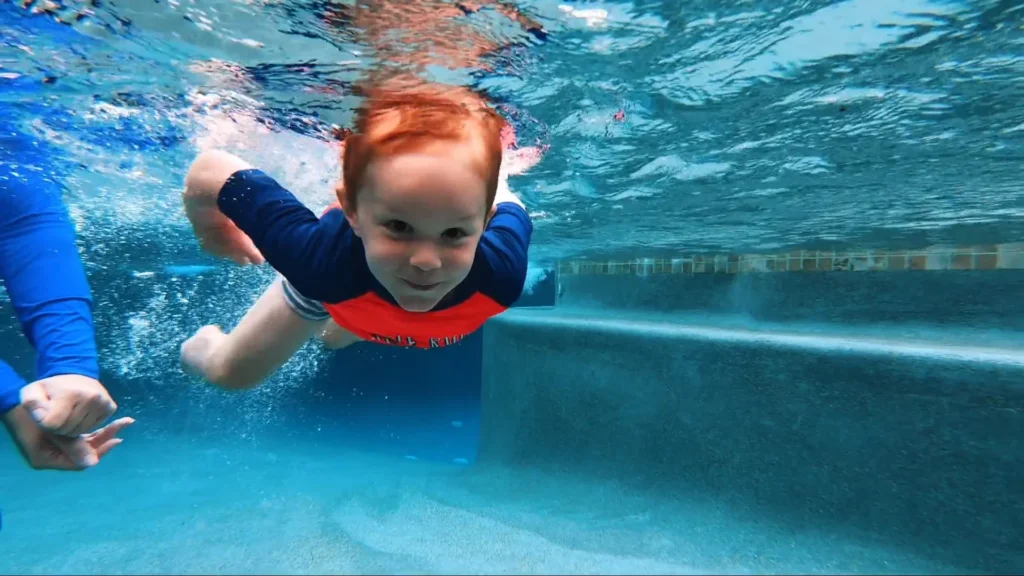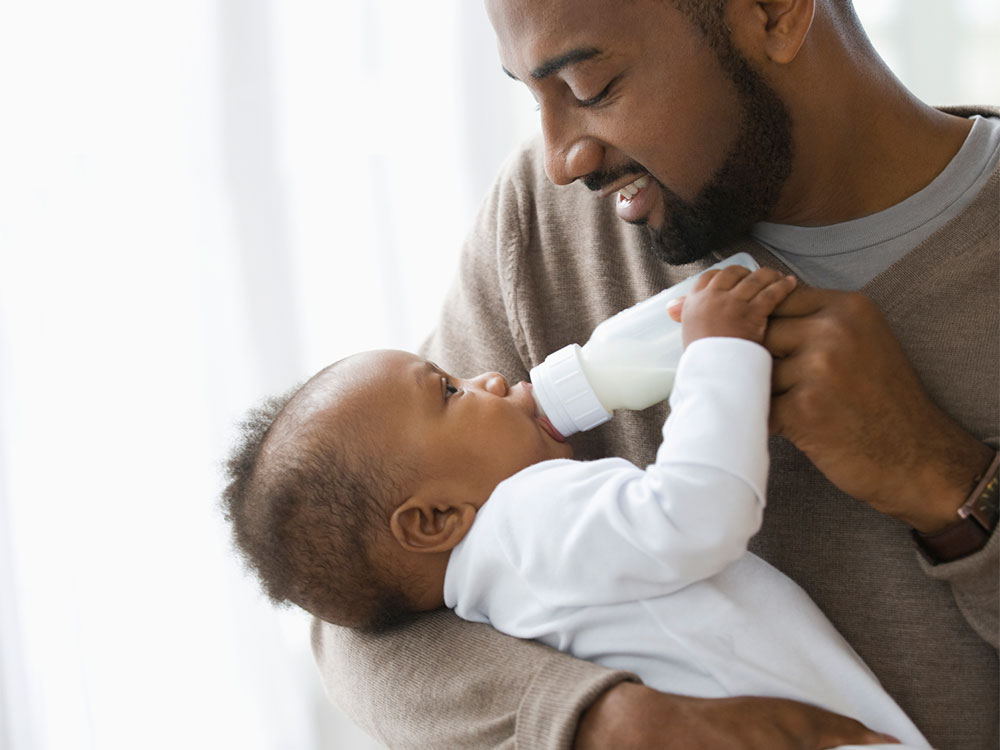Expectant parents often feel the pressure of preparing their home before a newborn arrives.
A bit of early planning helps reduce stress during those first tired weeks.
Easy, low-cost improvements offer comfort, order, and support for both parents and baby.
Let us take a look at a couple of them.
1. Create a Baby Essentials Station
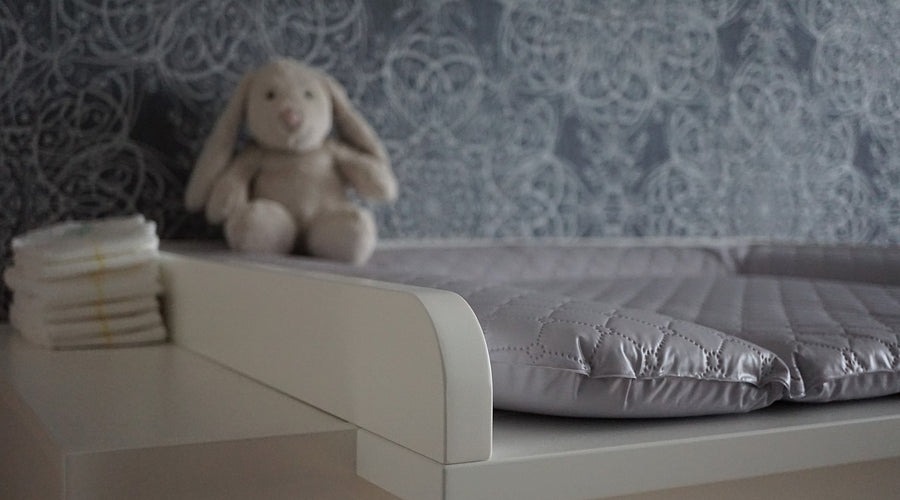
Source: livingtextiles.com
Newborn care becomes smoother when frequently used items are easy to reach.
Organizing these supplies in small stations across your home brings relief during long days and nights.
Extra attention helps lower stress, especially during moments when your hands are full.
A practical setup can include several supportive elements, and these elements can be outlined clearly:
- Diapers, wipes, and burp cloths for quick changes
- Water, light snacks, and a spare shirt for parents
- Small trash bags for easy cleanups
- Nursing pads or formula accessories
- Hand sanitizer or sanitizing wipes
Set up baskets or simple organizers in rooms where you spend most of your time, such as the bedroom and living room.
Keep each station compact so it never adds clutter. An organized setup cuts down on unnecessary trips around the home and preserves energy during tiring periods.
2. Clean and Declutter High-Traffic Zones
A tidy environment contributes greatly to a sense of safety and calm.
High-traffic spaces collect clutter, germs, and dust quickly, which adds extra work at a time when parents already feel stretched.
Effort should go toward clear priorities that help create a fresher, safer space. These tasks can include:
- Deep cleaning kitchen surfaces
- Scrubbing bathroom fixtures and floors
- Clearing counters of unused items
- Wiping germ hot spots like doorknobs and light switches
- Refreshing sponges or swapping them for new ones
Clear space in anticipation of new baby gear by removing items that no longer serve a purpose.
If your home includes a conservatory, now is a good time to consider a conservatory door replacement.
Poorly fitted doors can cause drafts, leaks, or moisture buildup, issues that disrupt temperature stability and may introduce dampness or security concerns.
Replacing or repairing these doors ensures a safer, cozier environment for your growing family.
3. Wash and Prep Baby Laundry

Source: heysunday.com
Newborn skin reacts easily to residues and irritants. Fresh laundry creates a softer and safer foundation for daily care.
Many parents find it helpful to prepare fabrics well in advance so everything is ready once the newborn arrives.
Several categories of fabric deserve early preparation:
- Clothing in various sizes
- Bedding and crib sheets
- Swaddles and blankets
- Towels and washcloths
Wash all items in fragrance-free detergent designed for sensitive skin.
Remove packaging, stickers, and tags before washing to avoid irritants that may brush against delicate skin.
Properly prepared laundry supports comfort throughout each day.
4. Babyproof Key Areas (Yes, Now!)
Movement often begins earlier than expected, so early planning helps create safer surroundings.
Babyproofing before exhaustion sets in gives parents confidence and saves time later.
A checklist brings clarity to the process:
- Install cabinet locks where toxic items are stored
- Secure bookcases and dressers to the walls
- Cushion sharp corners
- Shorten or hide loose cords
- Remove tiny objects that could present choking risks
Scanning your home with fresh eyes helps expose hazards that may otherwise go unnoticed.
Strong habits early on create a safer environment as your baby becomes more mobile.
5. Sterilize Feeding Equipment

Source: lovelyiqar.click
A newborn’s developing immune system benefits greatly from properly cleaned feeding supplies.
Clean bottles and pump parts help reduce unnecessary exposure to germs, especially during early feeding routines.
Several key steps help make the process simpler:
- Boil bottles, pacifiers, and pump parts before first use
- Use hot, soapy water for everyday cleaning
- Consider using a dishwasher for consistent sanitation
- Store clean items in a closed container to avoid contamination
Regular maintenance brings peace of mind and supports safe feeding throughout each day.
6. Stock Up on Everyday Household Essentials
Unexpected shortages feel far more stressful once a newborn enters the home, especially during moments when parents already feel drained.
Extra supplies help maintain calm routines and reduce unnecessary errands during those first challenging weeks.
A well-organized home stockpile brings several advantages.
You create smoother mornings, fewer interruptions during feedings, and a sense of readiness that supports emotional well-being.
A simple checklist adds structure to the task:
- Toilet paper and paper towels
- Laundry detergent and dish soap
- Hand soap and sanitizer
- Trash bags and cleaning cloths
- Quick snacks, electrolyte drinks, and easy meals for parents
Additional items often prove extremely helpful during the newborn stage. Examples include:
- Batteries for night lights or white-noise machines
- Extra toiletries for parents
- Gentle cleaning sprays that make fast wipe-downs easier
- Extra pacifiers, bottle brushes, and milk storage bags
- Hydration supplies like water bottles that are easy to open with one hand
Running to the store with a newborn can feel overwhelming, especially during bad weather or late evenings.
7. Prep and Freeze Meals
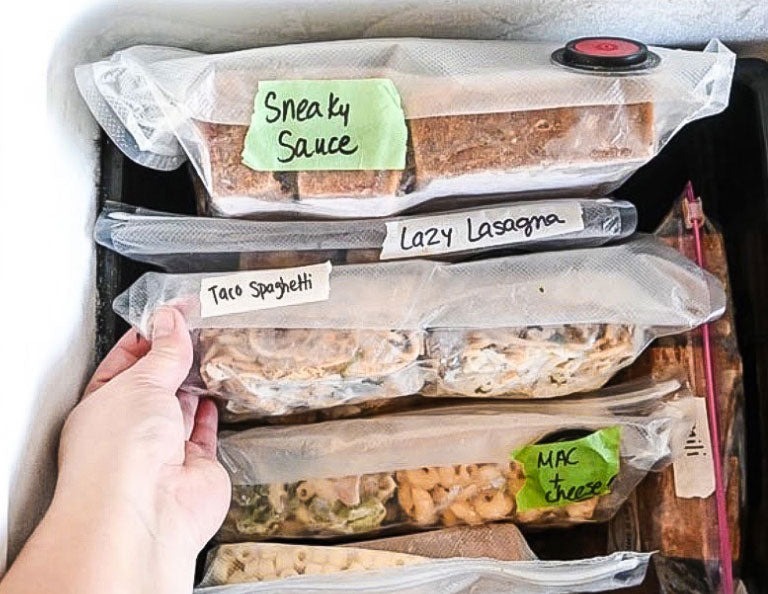
Source: soupercubes.com
Cooking becomes surprisingly difficult during the first weeks postpartum.
Long nights, irregular schedules, and constant feedings leave little energy for meal preparation.
Ready-to-heat meals remove pressure during moments when parents need nourishment but have no capacity to stand over a stove.
Comforting meals stored in advance save both time and effort.
Parents can stop worrying about food preparation and instead concentrate on recovery and caring for their newborn.
Frozen dishes also help maintain steady nutrition, which supports milk production and overall energy.
Several meal ideas work well for preparing in advance:
- Soups like vegetable, chicken noodle, or lentil
- Stews that reheat easily
- Casseroles that portion well
- Breakfast options such as muffins or egg bakes
- Protein-rich slow cooker meals
Label containers with dates and contents for easy selection later. Organized freezer meals help parents grab exactly what they need without sorting through multiple containers.
8. Set Up the Sleeping Space (Not Just the Nursery)
Newborns often sleep in their parents’ room at first, so preparing that space early supports smoother nights.
A calm and functional area helps parents rest, feed, and soothe their baby without unnecessary disruptions.
Several features enhance comfort and practicality:
- A bassinet positioned close to the bed
- Storage for extra swaddles or pajamas
- A comfortable chair for night feedings
- Soft lighting that limits sleep disruption
- A small table for water, burp cloths, and supplies
A well-arranged space helps nights feel more manageable and reduces the strain of frequent waking.
The Bottom Line
Early preparation reduces stress and supports smoother days once your baby arrives.
Small, affordable tasks make a meaningful difference and keep your home comfortable for the whole family.
Starting now, while energy is still stead,y helps you focus on bonding and recovery later.










